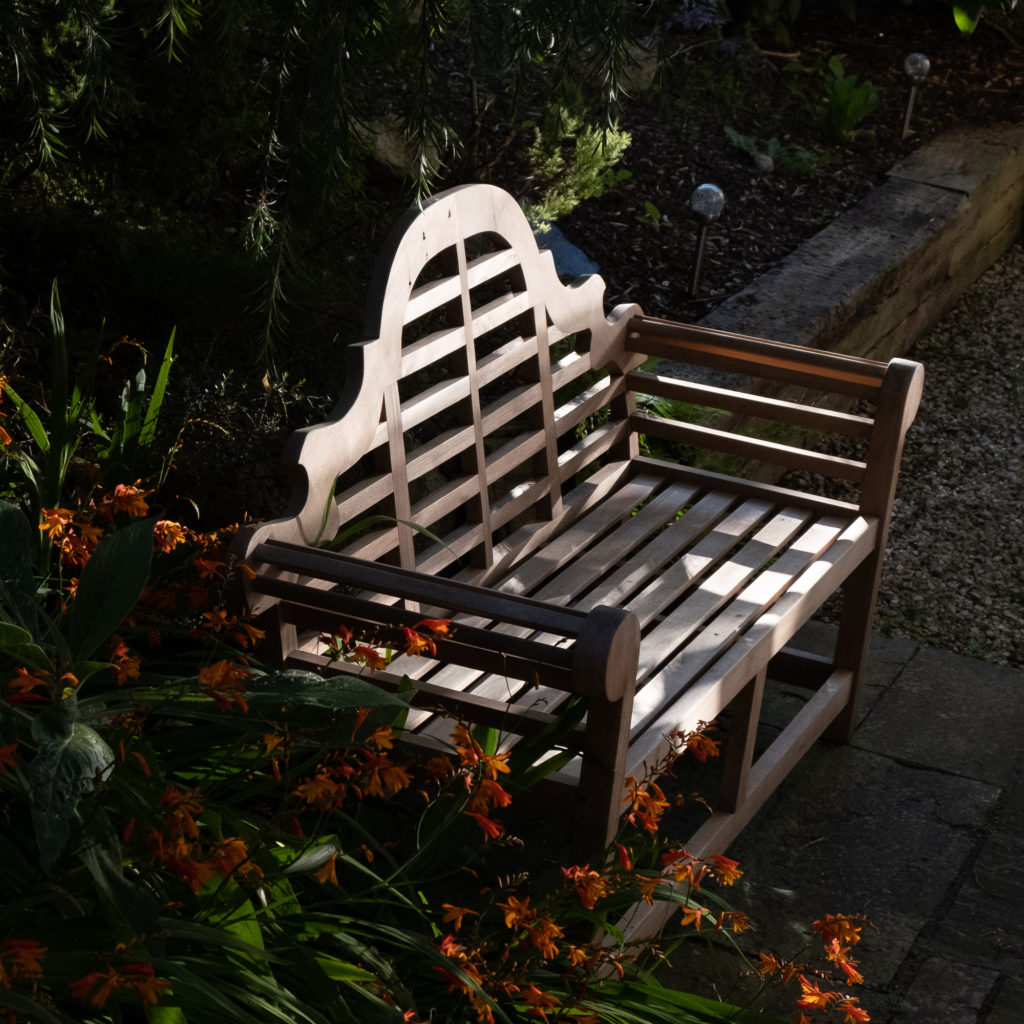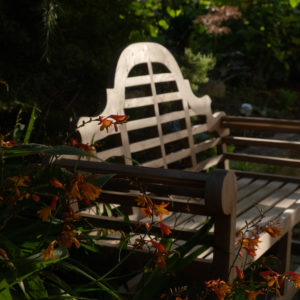Saturday was another busy day in our ongoing limited isolation.
Breakfast was depressing. Our granola and coffee were excellent and the eating of them a luxury afforded more by ongoing luck than planning.
It was the continuing bad news of the devastation and the absence of leadership in Beirut that was upsetting. It was like watching a rerun of the clean-up after Hurricane Katrina in Louisiana. That was another disaster accompanied by excellent meals for remote observers. Unless I’m wrong to believe that many of us consume our news at meal times.

So it was nice to have an early morning coastal walk in a harbour very much intact. A place where church spires and yacht masts dominate the skylines. Pray and play. Along a pier that ends at a lighthouse that was built as a battery to contain canons that never needed to be fired in defence. There was a chance, brief meeting with friends whose social distance was reduced from 800 km to just 5 metres for a five minute conversation.
Then we spent several hours in the garden levelling a stretch of hedge that can only be accessed from a roof. Our 15 minutes of clipping fame had expanded to two hours by the time we had collected, shredded and binned all of the cuttings.
Lunch incorporated a discussion about the despotism of cycle lanes. The news tells us that special powers have been given to the Dublin City Manager and he has taken affirmative but independent action. Cycle lanes are being created at his sole discretion. One assumes this is to encourage people of cycling age to get out and about by bike. Coastal carriage-ways are being halved in their capacity for motorised transport. And that halving necessitates the creation of one-way systems. This is all being done without consultation under emergency powers invoked by the national government to help manage the contagion. Temporary is the cover word being used for cycle route expansion. So it’s a social experiment, dare I presume?
It’s a regressive move that favours those who can afford an excess of lycra. This at a time when the vulnerable in society are struggling with issues that are not being addressed. Access to public transport is reduced by fear of contagion. Thus access to shops is reduced. At a time when the traffic flow to shops needs a boost, our city and town planners are adding restrictions based on carbon reduction aspirations. Looks like a ‘Let them eat cake’ moment to me.
Since livestock are responsible for nearly 20 per cent of all global greenhouse gases, why not metricate carbon emissions by cattle facts. I’ve read that the minimum cost a for a litre of milk is about one kilogram of burped greenhouse gas. The emissions could be six times higher in some regions such as the Sahel. For the same Sahelian six kilograms of CO2 or one litre of milk, we could drive a fully occupied bus some 60 kilometres.
So why build more cycle lanes? Isn’t the CO2 problem as simple as a weight loss mantra with one word changed? No so much ‘Move more, eat less’ as ‘Move more, burp less’. Isn’t the answer to add more public transport. Lots more buses. Electric buses that run 24/7 on routes that maximise access for all including the vulnerable. Use the emergency powers to build bus shelters that protect the vulnerable from the winter wind and rain.
We visited The Gutter Bookshop in Dalkey in the mid-afternoon. The primary mission was to cover a seventh birthday that’s coming up this week. Some adventures by David Walliams will do nicely.
Contagion
A secondary benefit was the impromptu purchase of the essay How Contagion Works by Paolo Giordano. I read it cover to cover on a bench under a fading yet bee buzzing Calistemon bottle-brush, a spent Syringa lilac and a pleasant infestation of Montbretia Copper Tips.
In the opening chapter, Grounded, Giordano writes that ‘Once the emergency is over, any temporary awareness will also disappear – that is the nature of illness.’ I was immediately reminded of the Anais Nin comment that ‘We write to taste life twice, in the moment and in retrospect.’ I was reading this in the moment but finding nothing in retrospect that was much wrong. My early contagion conversations and predictions were not dissimilar to the eloquent essay that Giordano wrote in a few days starting on February 29th.
A few reminders are useful. ‘If R0 is higher than 1, even slightly, we have an epidemic on our hands.’ Today, R0 in Ireland is creeping back up towards two but the official watch is on ‘the increase in cases and their clustering, rather than’ R0.
R0 still matters because as Giordano reminds us ‘Nature is, by its own nature, non-linear’. He adds that ‘Lowering R0 is the mathematical reason behind our self-sacrifice’.
He describes three phases as growth, suppression and patience. It seems we are failing to be patient. As he says ‘our only vaccine right now is an uncomfortable form of cautiousness.’
I strongly agreed and feel aggrieved that global leaders don’t see that ‘during a contagion, the lack of solidarity is first of all a failure of imagination.’
I also liked his description of an ultrasusceptible category that includes millions who have social and financial vulnerabilities. The recent meat-packing clusters in Ireland have exposed sharp practices among employers. They have instructed zero-hours employees to self-dose with anti-pyretics so that they pass the temperature screenings (among other outrageous employment abuses).
Like Giordano, I expect that contagion will happen again and again because the ‘contagion is just a symptom. The infection is in our ecosystem.’
He’s surely not wrong when he writes ‘Our civilisation can afford anything except slowing down.’ To my mind, there’s a clue in that sentence as to how we reduce the damage. We can and must afford to pay people to keep spending. Equality depends on money being in circulation. I believe that society will regress in proportion to the reduction in equality.
We need to learn the lessons from pandemic for the next one. He closes: ‘Gain a heart of wisdom. Don’t allow all of this suffering to be in vain.’




Great read, thanks. The statement that caught my attention today was “our civilisation can afford anything except slowing down”. So true. The solution to our polluting problems is not making transport easier, but for us to move around less. It’s not renewable energy, but using less energy that’s more important. And. The idea that money needs to be in circulation for the “economy” to work is important too. That’s the only way the rich and the swindlers can get more and more of it.
Peter,
What you may not realise about Dublin is that it has major infrastructural problems. These show up in the annual Tom Tom Traffic index. The 3Ti is a list of congested shame and Dublin features on it. Dublin, 47% congested, is the 6th most congested city in Europe and 3Ti rates it the 17th most congested city on the planet.
The relative score means that 400 cities manage for congestion better than Dublin. The legendary congestions of Los Angeles, London, Tokyo, Cairo, and Houston are not as bad as ours. To be fair, the traffic strangulations of Jakarta, Bangkok, Mumbai and Mexico City continue to outclass us. Yet Dublin only has a million residents.
In round number what this means to Dublin residents is that every 30 minute journey is going to take 45 minutes. Every 60 minute trip will take 90 minutes.
If you live in Dublin and have a nominal one hour commute, you will likely spend an extra hour commuting the round trip every day. That’s only 5 extra hours a week so it’s not so bad. 20 hours a month. Perhaps 200 hours a year assuming holidays and the like.
Multiply this by the working population and the hidden cost to the working people, the inefficiency, is huge. And it’s magnified by its relative effect on the commuting population. Some 500,000 work in Dublin of around 3 million in the entire nation. One sixth of potential contributors to the Irish economy are penalised 200 hours per year in addition to the financial taxes levied. In gross terms, simplified as a thought experiment, 200 hours of lost productivity or leisure or child minding for each of 500,000 people is an extraordinarily expense paid.
The OECD reports Ireland as collecting 30 billion in personal taxes (income, profits and capital gains) from 3 million people. Accountants can raise 10,000 a head by tax for the good of the country. The quality of life of the taxed is not being reciprocally protected. They will die earlier, paying less tax. They will be sick more frequently, costing medical support. In addition to the unmeasured opportunity costs from loss of productivity.
Working from home could mean moving less perhaps using less energy though home heating isn’t efficient. There will be social costs and a loss of certain cultural and competitive advantage less easy to quantify. Team work moves needles. I used to argue (in a former advisory role) that teams of three got stuff done better than teams of two or five. Factoring the cost to teamwork is important too.
Service economies can’t pack meat or paint a house or care for the elderly or transplant a kidney or pick a strawberry but getting desk jobbers off the streets and/or into public transport would be a good start for Dublin.
Simon